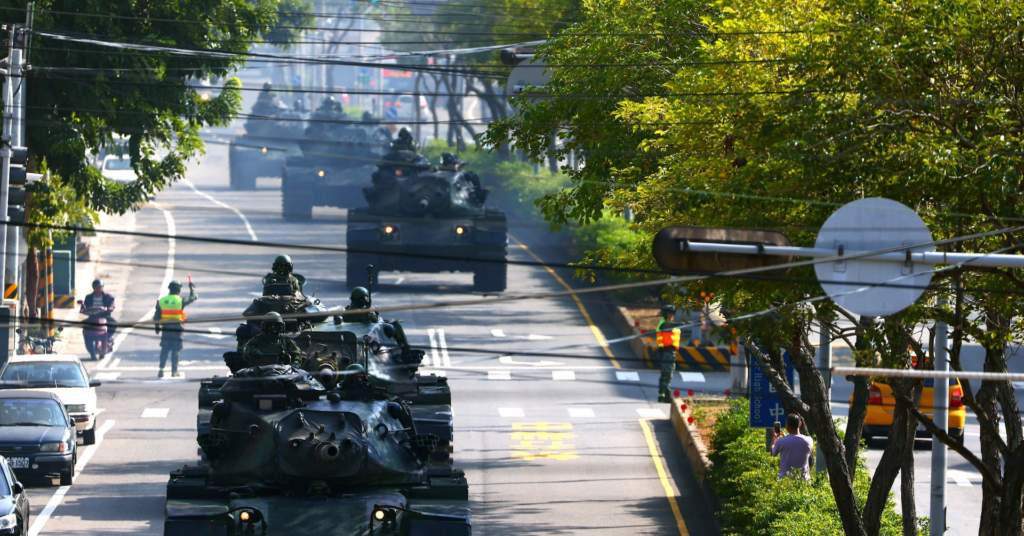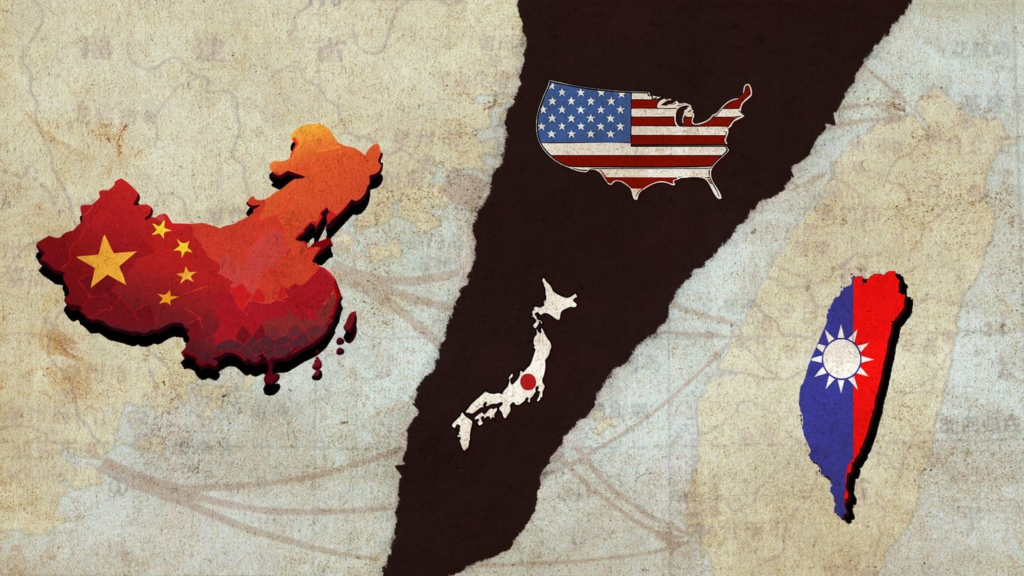Opposition Moves Threaten Security
Taiwan’s defence ministry has issued a stark warning. A recent decision by opposition parties to slash defence spending could have a “serious impact” on the island’s security. The legislation, passed last week, mandates an $80 billion Taiwan dollar (T$) reduction in defence funding.
This move comes at a time when Taiwan faces heightened military threats from China. The ruling Democratic Progressive Party (DPP), supported by thousands of protesters, has strongly opposed the cuts. The decision has sparked a heated debate over Taiwan’s ability to maintain its military readiness and sovereignty.

Defence Ministry Sounds Alarm
The defence ministry stated the funding cut would slash next year’s defence budget by 28%. This reduction could undermine critical military programs, including weapon upgrades and contractual obligations for equipment purchases.
“It is set to deliver a serious impact to the national forces’ military build-up and combat preparedness,” the ministry warned. Without these funds, payments for purchased items might be delayed or canceled, jeopardizing future defense capabilities.
Taiwan’s current defence spending represents around 2.4% of its GDP. The proposed cuts would lower this figure to below 2%, at a time when regional powers are ramping up their military investments.
“How do we persuade international friends to help us in a critical moment when the enemy is invading us?” the ministry questioned in its statement.
Political Tensions on the Rise
The opposition Kuomintang (KMT), known for its historically pro-China stance, currently holds a parliamentary majority. The KMT’s decision to redirect funds from central government projects to local municipalities has sparked accusations of political maneuvering. Critics argue the move prioritizes local politics over national security.
National Security Council Secretary-General Joseph Wu has expressed grave concerns. “This sends the wrong message—that Taiwan does not want to defend itself,” Wu stated. He warned such a perception could deter allied nations from supporting Taiwan in a crisis.

China’s Growing Threat
China has increased its military pressure on Taiwan in recent years. The Chinese government views Taiwan as part of its territory and has not ruled out using force to assert its claims. Taiwan, however, continues to reject these assertions and maintains its democratic independence.
Chinese military maneuvers, including frequent airspace incursions and naval exercises, underscore the island’s growing security challenges. In response, Taiwan’s cabinet proposed a record-high defence budget of T$647 billion for 2024, including investments in fighter jets and missile systems.
The recent funding cut jeopardizes these efforts. DPP officials have warned that weakening Taiwan’s defenses could embolden Beijing and escalate tensions further.
A Dangerous Precedent?
The timing of this decision is particularly alarming. China has recently floated the idea of a “One China, Two Systems” framework for Taiwan, similar to the arrangements in Macau and Hong Kong. While Beijing presents this as a peaceful solution, Taiwan’s government and many of its citizens remain deeply skeptical.
Critics of the KMT’s move argue it aligns with China’s long-term strategy to weaken Taiwan from within. By reducing defence capabilities, Taiwan risks appearing vulnerable, both to its citizens and international allies.
International Implications
Taiwan has been a key recipient of U.S. military aid and arms sales. Washington views the island as a strategic counterbalance to China’s influence in the Indo-Pacific. The defence cuts raise questions about how Taiwan will utilize its extensive inventory of advanced U.S. weaponry, including F-16 fighter jets and surface-to-air missile systems.
Allies may also question Taiwan’s commitment to its own defense. As Wu pointed out, a lack of domestic investment could discourage like-minded nations from providing critical support during a potential conflict.
Public and Political Backlash
The funding cuts have ignited public protests and political backlash. Thousands of demonstrators have taken to the streets, accusing the KMT of undermining national security. The DPP has vowed to challenge the decision, emphasizing the urgent need for military readiness in the face of Chinese aggression.
“The opposition is playing with fire,” a senior DPP official stated. “This is not just about politics; it’s about the survival of our nation.”
Looking Ahead
Taiwan stands at a crossroads. Balancing domestic politics with national security has never been more critical. The defence cuts risk sending mixed signals to both allies and adversaries.
With parliamentary gridlock and escalating external threats, Taiwan’s leadership faces an uphill battle to safeguard the island’s sovereignty. Whether through political compromise or public pressure, the path forward will shape Taiwan’s future in a volatile region.
Taiwan’s defence cuts have sparked a national debate and raised global concerns. As China continues to assert its claims over the island, maintaining a robust and well-funded military is essential. The opposition’s decision to slash funding poses serious risks, not only for Taiwan’s security but also for its international standing.
The question now is whether Taiwan can navigate this crisis and emerge stronger—or if political infighting will leave the island vulnerable in an increasingly dangerous world.
Our Visitor






 Users Today : 39
Users Today : 39


